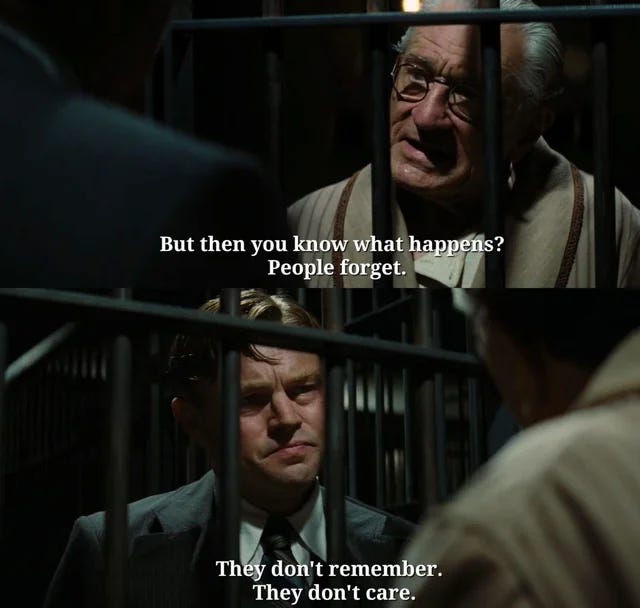Even before Donald Trump handily won re-election this week, I’ve been hesitant to frame the last four years as the Biden Era. Should Kamala Harris have won, would that have even been the Harris Era or, again, an extension of our 2016 limbo—in other words, the Trump Era with an asterisk? This is moot now, with Biden’s term sandwiched by more of the Trump Era without the asterisk and Harris’s political future looking more or less over. And, yet, an interesting thought experiment has been popping up on social media as Joe Biden’s final months in the Oval Office loom: what is the defining film of the Biden era? I might reframe it as: what piece of media best represents the kinds of anxieties and passions that erupted in the Trump era’s Biden interregnum?
More than a few responses to this prompt have singled out Martin Scorsese’s Killers of the Flower Moon, a brutal epic about one dumb man (Leondardo DiCaprio)’s complicity in the mass killings of Osage Nation members in pursuit of oil money in the 1920s. There are any number of parallels one might draw from the film’s thematic concerns or its characters to today, with the wolf-among-sheep William Hale (Robert DeNiro) perhaps emerging most underlined as a Trump analog by the otherwise taciturn DeNiro’s real life jeremiads against 45/47 whenever he gets a platform. But the most interesting element in Killers of the Flower Moon’s ending in particular suggests the way that the shameless can not only wield power but wield narratives, the way the battle over platitudes like “I’m on the right side of history” presumes that history is a neutral arbiter and not subject to the same biases and stupidities that led to the scope of Hale’s murders in the first place.
Keep reading with a 7-day free trial
Subscribe to The Entertainment to keep reading this post and get 7 days of free access to the full post archives.




